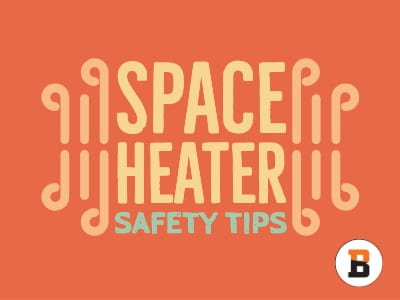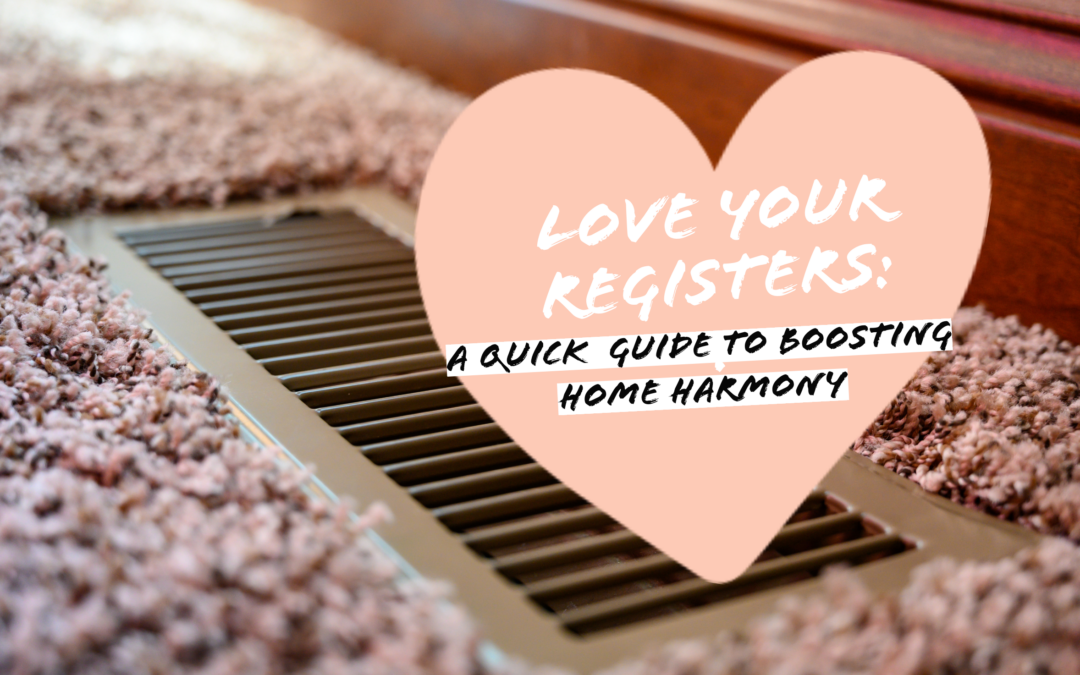Space heaters can be extremely convenient. They can increase heating performance, targeting particular rooms. They can enable you to close down your home’s primary heating system if required. And they can be lifelines during a furnace disruption in the frigid months of winter. However, with approximately 20,000 household fires caused by space heaters every year, they are invariably dangerous — regardless of whether they are old or new. So what’s the safest way to utilize them? To keep you and your family safe this winter, we at Beavercreek Heating & Cooling composed the following space heater safety suggestions.
SPACE IS YOUR FRIEND
Make sure your space heaters are at a minimum of three feet away from anything that is considered combustible. Typical stuff to keep an eye out for include mattresses, couches, other furniture, curtains, papers, boxes, and more. Keep a closer eye around the rear and sides where heat is propelled.
DOUBLE CHECK YOUR CORDS
How does the cord look on your space heater? If it’s damaged, don’t use it. It’s time for another. Keep a special eye out for fraying, and wires that might be visible. If the copper wire within the rubber cord is exposed, do not endeavor to fix it with electrical tape. No compromises. It’s time for a new one.
MAKE SURE IT’S FIRMLY PLUGGED INTO THE OUTLET
Be certain your space heater is securely plugged in directly to a power outlet that holds it tightly in position. It should not be wobbly. Also, make sure it doesn’t get partly or entirely unplugged when you aren’t looking. Lastly, do not try to utilize any extension cords or power strips except when it is unavoidable. If it is unavoidable, do not cover or hide the extension cord. You need to be able to see the entire thing.
KEEP IT STEADY
Be 100 percent certain to place your space heater on a level surface on the floor. It needs to be durable, flat, and solid. It needs to be on a surface where it won’t get knocked over accidentally. This rules out coffee tables, desks, countertops, and especially chairs. If it’s not on an even surface on the floor and out of the way, it’s out of the question. Elevating them is a dangerous idea all the way around.
SAFETY CHECK
Is your space heater safety-certified? If you don’t know the answer to this question, check for a sticker, metal tag, or branding on your device that shows you it is authoritatively certified as remaining safe to use. Often, this is merely a safety logo on the back. If this is not present, or if the space heater has been modified from its original condition, do not use it.
SMOKE, CARBON MONOXIDE DETECTION
If you plan on using a space heater, inspect the batteries in your smoke and carbon monoxide detectors to be confident they are operational in the event of an accident. Remember, space heaters are known to cause fires, especially when they aren’t used properly, or when something goes wrong, mechanically.
DO NOT LEAVE IT RUNNING IF YOU AREN’T AROUND
Although everyone loves a warm place to sleep, it’s important to remember to shut down your space heater when you go to bed. Likewise, if you are not going to be in the room or you leave home, turn it off to keep things safe. This applies to any time you aren’t present to keep an eye on it. Remember, shut it down if you aren’t around.
INSTRUCT AND EDUCATE EVERYONE IN THE HOME
Be certain that all those in your home are aware of these space heater rules, especially if they are going to be alone with it. Educate them to make sure they know how it functions, how to shut it down or turn it on, and what to watch out for to circumvent any mishaps. As a habit, it’s a sound plan to ensure your children understand the space heater is OFF-LIMITS. Unless you are certain they are mature enough and you’ve instructed them, they should not touch any space heaters.
USING PROPER FUEL
Using a space heater that burns fuel can be even riskier. If your space heater needs to burn fuel to function, be extra careful. First off, make sure the type of fuel you possess or obtain is the right kind of fuel. If there’s any doubt, remember, rule it out. It is not worth taking chances. Burning the incorrect sort of fuel can start a fire, in addition to ruining your unit. Secondly, if you have the right fuel and decide to burn it, you’ll want to first start out by researching the safety precautions for that particular unit and following them to the “T.” One example is that space heaters demand a certain amount of ventilation. Most units have their own special set of safety rules. And a lot of fuel-burning space heaters are not meant to be used inside residential dwellings. They are especially dangerous.
TOO HOT TO TOUCH
Do not use a space heater if it becomes excessively hot to touch. Remember, if it’s too hot to touch, turn it off. Don’t use it.
And this goes for the cord as well. If it gets excessively hot, unplug the machine and don’t use it. Being too hot to touch is a sign; something is amiss. You could contact an electrician. Or you could find it easier to use a newer, better, safer space heater.
STAY AWAY FROM WATER
Do not place a running space heater near the sink, the shower, the bathtub, or any water for that matter. Likewise, if your person is wet, say you just showered, be sure dry yourself off prior to coming into contact with it. Most of us, with any familiarity with electricity, know that water and electricity equal danger. Water is a natural conductor. You could be shocked. It could trigger a fire. It could knock the power out for your whole house. It could even be worse.
KEEP THE WHOLE CORD VISIBLE
Make sure your entire cord, from the space heater to the wall, is visible. Do not try to conceal the cord for your space heater beneath the carpet, throw rugs, furniture, or anything else for that matter.
SMALL HEATER, SMALL ROOM
Do you know the square footage of the room your space heater is intended to heat? If you don’t know, now is the time to find that out. Look it up. Check the box. Consult a professional. Whatever the case, you don’t want to end up using a space heater intended for large spaces in a small room, and vise versa. You don’t want to use a space heater intended for a larger room in a small room. A number of things can go wrong this way. So know the square footage of space your heater is intended for and know the size of your rooms to match the two.
For more information, or to schedule a furnace tune-up, call Beavercreek Heating & Cooling at 937-708-8527 or schedule an appointment now online at www.beavercreekheatingandcooling.com/schedule-now/.








